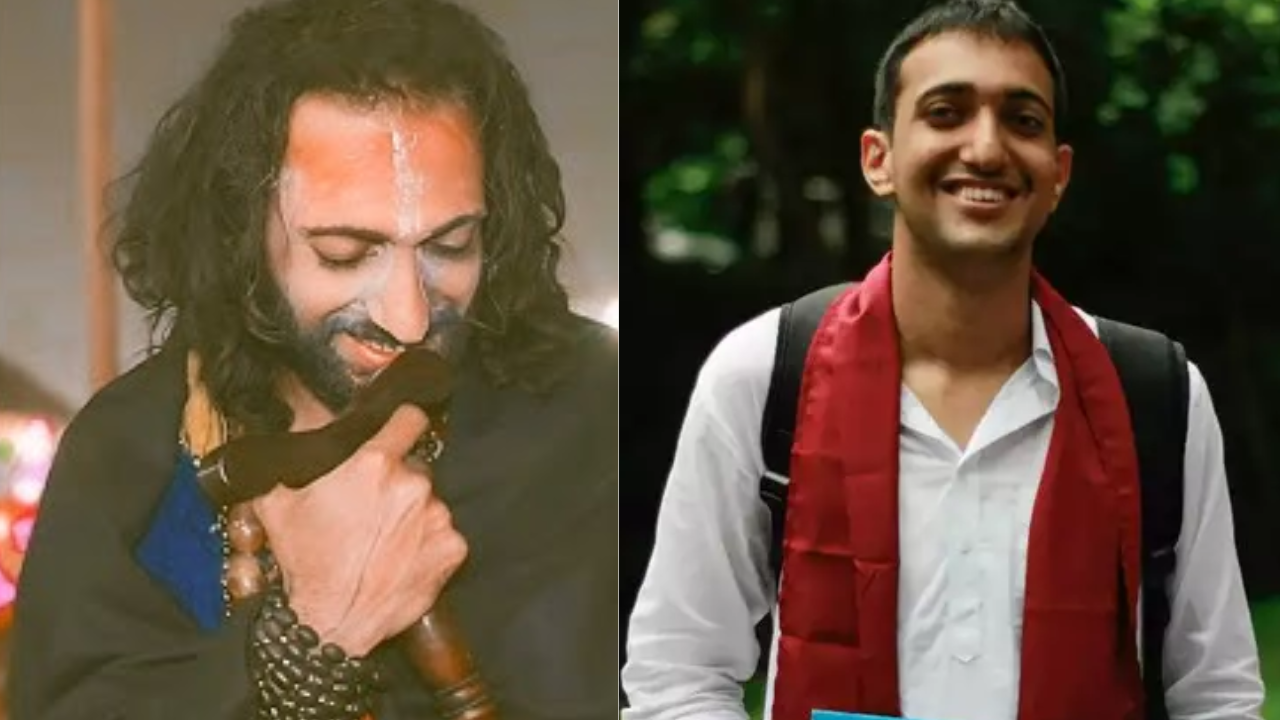Contents
-
news
-
Health
-
mental health
IIT Baba at Mahakumbh: How unseen scars of childhood trauma shaped his mental health?
Childhood trauma and unsuccessful parenting often cause lifelong psychological distress. IIT Bombay alumnus Abhay Singh left his career for spirituality in search of solace after battling depression and unresolved personal challenges.

IIT Baba at Mahakumbh: How unseen scars of childhood trauma shaped his mental health?
Abhay Singh, popularly known as IITian Baba, surprised many with his remarkable transformation from an aerospace engineer to a spiritual monk. Born in Haryana and an alumnus of IIT Bombay, he gained widespread attention after his interview Mahakumbh Mela revealed her unconventional journey from academia to devotion, generating curiosity on social media.
Singh, who now has over 300,000 followers on Instagram, was thrown out of the Juna Akhara camp after allegedly using derogatory language against his guru Mahant Someshwar Puri. In a viral video, he called his father “Hiranyakashyap” and his guru “mad”.
Singh, also known as ‘Engineer Baba’, has a degree in Aerospace Engineering from IIT Bombay. However, he left science to pursue spirituality. When asked about his childhood, he revealed the incidents of domestic violence at his home and the impact that the constant fighting between his parents had on him, although he was not directly involved. To avoid the chaos, he would lock himself in his room after school and study in peace.
Singh said that his decision not to marry was also influenced by being raised in a way that he did not want to experience what he did at home. Thus, this young man’s story highlights how trauma and unsuccessful parenting can result in severe psychological distress, manifesting as escapism, recidivism, or self-isolation. It’s a sobering reminder that even those with the potential to do great things can fail without an emotional investment in themselves.
Childhood is often considered as a foundation on which human life depends and develops into learning and emotional maturity. Mr Ankur Kapoor, Consultant Clinical Psychologist, Artemis Hospitals, explains, “Trauma during critical developmental stages of life causes remodeling of brain architecture, particularly in areas responsible for emotional regulation and decision making, including the amygdala, prefrontal cortex, The cortex is involved.” and the hippocampus.” This rewiring leads a person to mental health Challenges, PTSD, depression, or anxiety disorders.
It has been proven through research that such changes in children’s behavior hinder a person’s ability to deal with stress and build good relationships. Lack of security, as perceived emotionally, leads to experiencing adverse situations such as withdrawal, aggression, or substance abuse during childhood.
Ripple effect of parenting styles
Parenting styles are important in mitigating or exacerbating the effects of childhood trauma. Supportive parenting provides the child with resilience to deal with the challenges that lie ahead. Conversely, excessive criticism, emotional unavailability, or imposing unrealistic expectations can aggravate the trauma.
For example, authoritarian parenting—high expectations and little emotional support—can make children feel inadequate. Permissive or neglectful parenting, on the other hand, leaves children without the boundaries and emotional connection to support healthy development. According to Mr. Kapoor, “Children thrive in environments where parents provide structure and empathy. When either of these is lacking, the child’s sense of security and self-worth suffers.”
The most poignant example of the far-reaching consequences of childhood trauma is that of Abhay, whose case garnered national attention. A young man, a promising student of one of India’s most prestigious institutions, deviates from his academic path and ultimately abandons social norms. Known as the “IIT Bombay Baba”, he attributed his downfall to unresolved childhood trauma.
Although the exact nature of her experiences has not been disclosed, according to reports and speculations, it appears to be a toxic mix of parental pressure and emotional abandonment. Childhood trauma doesn’t just affect emotions; It molds the brain. Chronic stress and adverse experiences interfere with the proper functioning of important brain areas:
Amygdala: Hyperactivity can lead to a hyper-vigilant state, making individuals more susceptible to anxiety and fear.
prefrontal cortex: Poor decision making and inability to control emotions are associated with changes in this area.
Hippocampus: Shrinkage and reduced function in this area are linked to memory problems and increased vulnerability to depression.
Such changes in the brain remind us why early intervention is necessary. Trauma is not a “phase” that a child grows out of, but continues to affect his or her personality, behavior, and mental health well into adulthood.
How early intervention could have changed’IIT Babalife of?
It lies in early recognition and addressing the effects of childhood trauma. As psychologist Sri Kapoor has noted, “Trauma-informed therapy, whether it’s cognitive behavioral therapy or dialectical behavior therapy, seems to be quite helpful in terms of how a person actually begins to process their own experience. and can actually create more healthy ways to deal with it”.
Parents also play an important role in breaking the cycle of trauma. An environment of emotional safety and open communication can make a big difference in a child’s mental health. Simple gestures like active listening, validation of feelings, and unconditional love can provide stability and support for children moving forward.
While therapy and supportive parenting are important, deeper social changes are equally important. Schools, communities, and health care systems must work together to foster environments that focus on mental health. Education programs for healthy child-rearing practices and other resources for families in crisis prevent trauma before it occurs.
Mr. Kapoor concluded, “Breaking the chains of trauma begins with recognizing its existence and taking steps to heal individually, within families, and as a society.”
Get the latest news live on Times Now with breaking news and top headlines on mental health, wellness and more from around the world.
Mahakumbh
IIT Baba
mental health


